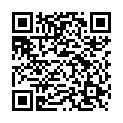|
|
|
| Module code: KIB-SFA1 |
|
|
2SU (2 hours per week) |
|
2 |
| Semester: 5 |
| Mandatory course: no |
Language of instruction:
Spanish |
Assessment:
Written examination (final exam)
[updated 19.02.2018]
|
E2424 (P200-0022) Electrical Engineering and Information Technology, Bachelor, ASPO 01.10.2018
, optional course, non-technical
KI663 Computer Science and Communication Systems, Bachelor, ASPO 01.10.2014
, semester 5, optional course, non-technical
KIB-SFA1 (P200-0022) Computer Science and Communication Systems, Bachelor, ASPO 01.10.2021
, semester 5, optional course, non-technical
KIB-SFA1 (P200-0022) Computer Science and Communication Systems, Bachelor, ASPO 01.10.2022
, semester 5, optional course, non-technical
MAB.4.2.1.4 (P200-0022, P620-0568) Mechanical and Process Engineering, Bachelor, ASPO 01.10.2013
, semester 5, optional course
MST.SA1 (P200-0022) Mechatronics and Sensor Technology, Bachelor, ASPO 01.10.2012
, semester 5, optional course, non-technical
MST.SA1 (P200-0022) Mechatronics and Sensor Technology, Bachelor, ASPO 01.10.2019
, semester 5, optional course, non-technical
MST.SA1 (P200-0022) Mechatronics and Sensor Technology, Bachelor, ASPO 01.10.2020
, semester 5, optional course, non-technical
PIBWN50 (P200-0022) Applied Informatics, Bachelor, ASPO 01.10.2011
, semester 5, optional course, not informatics specific
PIB-SFA1 (P200-0022) Applied Informatics, Bachelor, ASPO 01.10.2022
, semester 5, optional course, not informatics specific
PIB-SFA1 (P200-0022) Applied Informatics, Bachelor, SO 01.10.2026
, semester 5, optional course, not informatics specific
MST.SA1 (P200-0022) Mechatronics and Sensor Technology, Bachelor, ASPO 01.10.2011
, semester 5, optional course, non-technical
|
30 class hours (= 22.5 clock hours) over a 15-week period.
The total student study time is 60 hours (equivalent to 2 ECTS credits).
There are therefore 37.5 hours available for class preparation and follow-up work and exam preparation.
|
Recommended prerequisites (modules):
None.
|
Recommended as prerequisite for:
KIB-SFA2 Spanish for Beginners II
[updated 15.10.2017]
|
Module coordinator:
Dr. Julia Frisch |
Lecturer:
Dr. Victoriana Herrador Morillo
[updated 16.10.2017]
|
Learning outcomes:
The course “Spanish for Beginners I” is aimed towards learners with little or no previous knowledge of the Spanish language. The courses “Spanish for Beginners I and II” are based on each other. In the course of the two modules, students will first reach proficiency level A1 and then advance to level A2 of the European Framework of Reference for Languages.
The goal of the course is to provide students with basic knowledge of the Spanish language, which will enable them to communicate in general and professional situations as quickly as possible, both orally and in writing. To do so, all four skills (speaking, listening comprehension, reading and writing) will be trained equally. Content development will be supported by the repetition of the relevant grammatical structures.
The course takes a communicative and pragmatic approach that particularly promotes communicative competence in job-relevant situations through the use of role playing and situational dialogues. This also includes intercultural aspects that raise the students´ awareness of cultural differences and enable them to assert themselves in specific situations.
[updated 30.07.2021]
|
Module content:
Content:
In the course „Spanish for Beginners I“ students will learn the lessons 1 to 5 from “Meta Profesional A1-A2” (Spanisch für den Beruf. Klett Verlag).
Establishing contact
- Formal greetings
- Introductions
- Asking how someone is feeling
- Giving information about yourself and requesting information about others
- Saying thank you, apologizing and saying goodbye
- Describing a person
- Giving directions
- Getting to know business partners
- Job profiles and the workplace
- Describing jobs and activities
- Types of companies
- Showing and describing products
- Describing departments and responsibilities
- Planning activities
- Interaction with colleagues
- Participating in international trade fairs
Oral and written communication
- Common verbal expressions (asking for names, telephone numbers and e-mail addresses)
- Business lunches
- Making appointments with colleagues
- Requesting and giving information
- Writing e-mails
- Time
- Daily schedule, making appointments
In addition, basic grammar structures will be learned (e. g. indicative presence of regular and irregular verbs, form of progression, prepositions, personal and possessive pronouns, asking questions, syntax).
Students should work on and expand their basic vocabulary independently.
[updated 30.07.2021]
|
Teaching methods/Media:
Teaching and learning materials (print media, slides, audio-visual teaching materials), multimedia learning software compiled specifically for the learning group.
[updated 19.02.2018]
|
Recommended or required reading:
The course is based on the following textbook and will be supplemented by additional learning material:
Meta Profesional – Spanisch für den Beruf, Lehrbuch ISBN: 978-3-12-515460-5
We also recommend these books for grammar:
Uso de la Gramática Española. Nivel Elemental. ISBN 3-12-5358116-6
Spanische Grammatik für Selbstlerner 01 Bd.1 ISBN-10: 3896577093
Tiempo para conjugar. Buch mit CD-Rom, PC, Mac. ISBN 3-12-535809-4
Students will receive a list of recommended teaching and learning materials.
[updated 30.07.2021]
|
Module offered in:
SS 2025,
SS 2024,
SS 2023,
WS 2022/23,
WS 2021/22,
...
|


